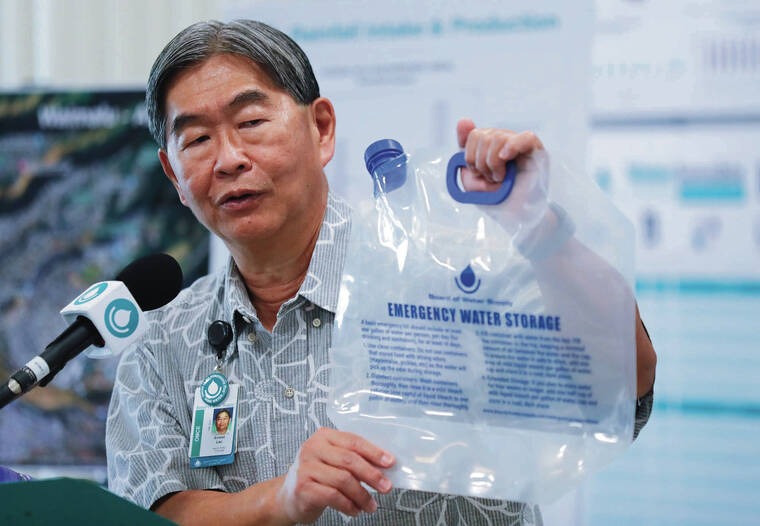The buzzword of these trying times? Conserve.
Whether it be water, electricity or gasoline, using less will be Hawaii’s theme these next few months.
First, using less water. The Honolulu Board of Water Supply (BWS) on Thursday called on Oahu residents and businesses to voluntarily reduce their water usage by 10%, to prepare for the summer season.
“When we shut down our Halawa Shaft due to the Navy’s Red Hill crisis, we knew that having to ask for voluntary conservation was a possibility,” said BWS Manager Ernest Lau. “We had hoped we could avoid this. Unfortunately, we are in a difficult situation not of our own making.”
After a Navy water shaft became contaminated by fuel leaked from its Red Hill tank facility last November, the BWS took the precaution of shutting its own Halawa Shaft. That, coupled with less-than-normal rain, led to this water-conservation call.
Oahu consumers are urged to use water wisely. Among the BWS’ tips (see www.boardofwatersupply.com/7ways Opens in a new tab): water lawns and gardens before 9 a.m. or after 5 p.m., take shorter showers, and don’t keep faucets running.
Second, using less electricity. Hawaiian Electric is warning that over the next several months, due to oil prices driven up by Russia’s invasion of Ukraine, energy bills for Oahu customers will rise about 10%, and about 20% for Hawaii island and Maui County. That hit, on top of already high electricity bills, will surely necessitate less air conditioning and less use of appliances such as water heaters, ovens, stoves and clothes dryers. See more at hawaiianelectric.com Opens in a new tab and at hawaiienergy.com Opens in a new tab.
Third, using less gasoline. Again, due to the U.S. ban on Russian oil over the brutal Ukraine war, prices at the pump are already rising. On Thursday, the average price of gas in the U.S. hit a record-high of $4.32 per gallon, while Hawaii saw a record average of $4.81.
Amid all this tightening, let’s look hard for some upsides. Conserving water now could foster better lifelong habits for more-efficient water use and less wasteful behaviors. Conserving electricity can mean less TV and electronic devices — and more time spent outdoors. Conserving gas could lead to creative strategies for carpooling and consolidating errands.
There’s so much beyond our control nowadays — but conserving more and using less, that’s something we can control.

